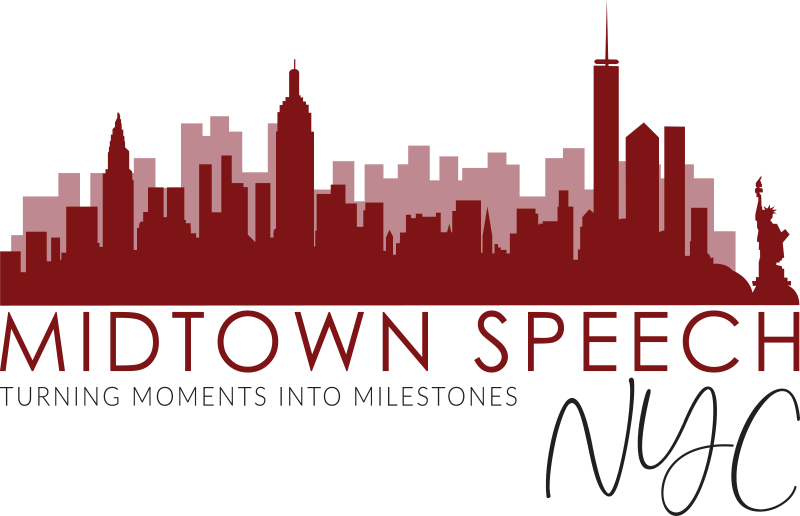What happens during a speech-language evaluation?
Evaluations are a routine task for me as a speech-language pathologist. I sometimes unjustly assume that they do not need a proper explanation. However, I get this question a lot so parents are understandably not sure what happens during this important time.
So here’s a post to hopefully help clarify and better define this essential step.
Evaluations are important because they help determine the presence of speech, language, social and/or feeding issues. A variety of assessment tools are used to make this determination. The ultimate goal is to identify strengths and weaknesses, and in turn identify next steps for the child and his/her family.
What are the parts of an evaluation?
Evaluations may look differently for different ages. For young children, a formal evaluation is highly play-based with a few structured tasks. For older children and adolescents, more formal measures are administered.
To get a holistic look at a child, the following elements are included in a speech-language evaluation:
Parent Interview – Specific questions to gain details about birth history, medical history, ages of developmental milestones, educational history, family history, etc.
Review of Past Records – This includes relevant health reports, previous assessments, etc.
Behavioral Observations – Measure the child’s general behavior including attention, attachment, communication, response to failures, response to feedback, and mood and temperament
Formal Standardized Measures – Tests administered a specific way to assess the child compared to same-aged peers. Norm-referenced tests produce standard scores and percentiles that support whether a given child has an impairment. Important to note that the normed population in a testing tool must match the student’s cultural and linguistic background.
Informal Measures – Performance-based assessments with no rubrics or metrics, observation of skills during varied tasks, and analysis of spontaneous language, narrative samples and written samples (if developmentally appropriate).
What skills are being assessed?
In general, the following skills are being assessed during a speech-language evaluation:
Receptive Language – how a child understands language
Expressive Language – how a child uses sounds and words
Pragmatics – how a child uses language in various ways
Literacy – the ability to use language to read and write
Play Skills - the ability to demonstrate functional and symbolic play skills, mainly for younger children
Articulation – proper movement of the speech mechanism to produce speech sounds
Phonology – rules of the sound system of our language
Voice – assessment of voice quality and overall observation breathing and posture
Fluency – how a child speaks smoothly and effortlessly
Oral motor mechanism – assessment of the orofacial musculature for eating, drinking, facial expression and speech
Feeding/Swallowing - assessment of how a child moves food or liquid from the mouth to the stomach
Assessment tools (both formal and informal) are carefully selected based on the concerns of the parent or the professional that is making the referral. For example, if a parent is concerned about stuttering, additional instruments that more thoroughly assess speech fluency and stuttering-related behaviors will be included.
After the evaluation, the speech-language pathologist will have the information needed to make determinations about whether an impairment is present. If so, the evaluator will provide recommendations and guide the goal development for an effective intervention. These findings will be shared with the parents in a detailed written report.
Where can my child get evaluated?
At Midtown Speech NYC, we are a boutique private practice in speech-language pathology in Midtown Manhattan, New York City. With individualized assessments and personalized treatments, we help children of all ages improve their speech, language and feeding skills. More information about our Founder, Rebecca “Becky Iswara
We see a world where parents of children of ALL abilities know the value of evidence-based services, have uninhibited access to the experts they need, and can easily read information online backed by science. If you have concerns, reach out to us!
We are here and ready to help you and your child!
More Information about Private Assessments with Midtown Speech
Other Resources:
For children under 3 years of age, reach out your pediatrician if you have concerns. Early Intervention Programs within your state tend to provide free evaluations to families and in turn free services if your child qualifies based on the state’s criteria.
I am an approved Early Intervention Provider in New York State given my extensive background and experiences in Early Childhood. I conduct comprehensive evaluations and servicing within my area. Please reach out for more details!
For families with children 3+ years of age, reach out to your local school district regarding CPSE (Committee on Preschool Special Education) services and CSE (Committee on Special Education) services. If you child qualifies, they may be able to get free services.
Do not hesitate to reach out for help if you have concerns. Early Intervention can help close the gap, augment skill development and boost a child’s long-term outcomes.

